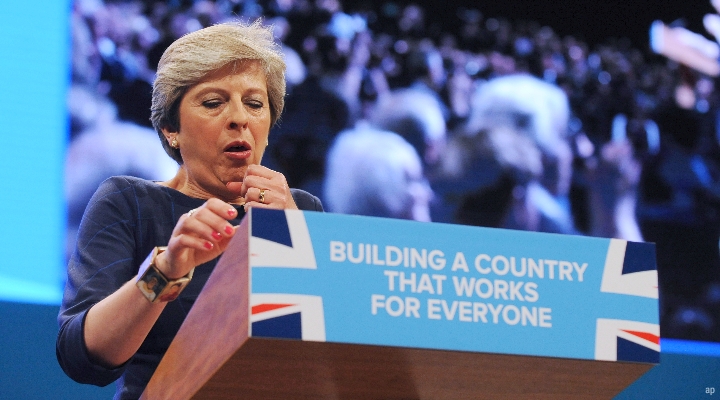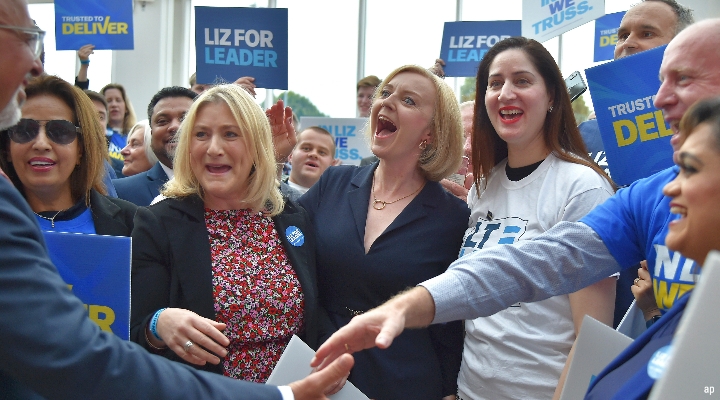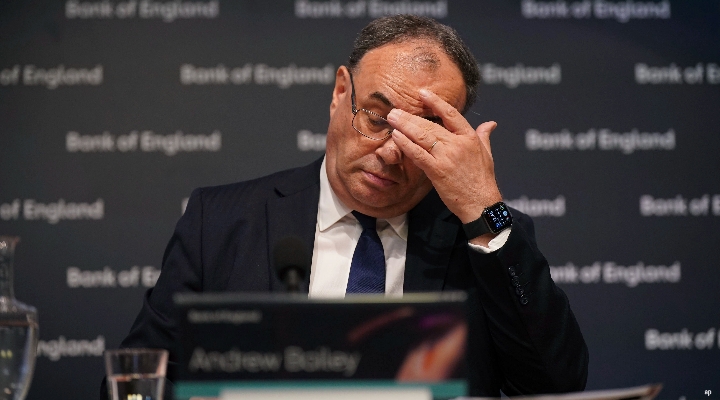
If the supply of money goes up but production remains the same, prices will rise. That’s inflation, right? It erodes wealth and diminishes your purchasing power.
Crisis inflation has a second meaning though. The other day, as I was sat listening to tributes to Bill Turnbull, I tried to pinpoint the last time things felt normal.
At the top table, the last time I felt some shred of normality was probably before the Brexit referendum in 2016. The short-lived Tory majority that preceded it was an image-conscious affair that achieved very little in practice, but that was pretty much the cut-off point (in my mind at least). After that, things got wilder and wilder.
It’s not just about chaos with Ed Miliband looking surprisingly attractive in hindsight though. The tenure of Theresa May was chaos, defined as much by the rise of Donald Trump as it was terror attacks, Brexit loggerheads and her own political misjudgements. "Coughgate" at the 2017 Tory Conference was an unfortunate way to end a speech already beset with problems, but it was a symbol. Things were breaking.
Chief among May’s mistakes was the 2017 election, the legislative consequences, and what was a generation-defining last-chance failure to grasp the nettle of social care and health funding. All that has faded in the popular memory quite fast. I think I know why.
We are suffering from crisis inflation. I don’t just mean things cost more. We have been in the midst of so many crises we have probably forgotten the way things should be.
Every crisis that occurs gradually desensitises our awareness of what a crisis is. But perversely it also seems to make the lessons from each incident less noticeable, and therefore less valuable. Getting people’s attention suddenly becomes very difficult.
I'll give you an example. As I mulled this over I remembered a breakfast briefing I attended with my colleague Sunniva in December last year. Over coffee and croissant, we heard one fund manager’s take on the UK and its economy. The outlook was good because, in his opinion at least, the UK had achieved a period of political stability. His words not mine.
Now, say what you want about our outgoing prime minister, but his tenure has not been one of political stability. That much was very obvious by the end of 2021.
You'll never guess which company this fund manager was from. Abrdn. Say what you want about the recently-demoted FTSE firm, predicting the future is a risky game. But it was more than that. UK fund managers had become desensitised to political risk. Sometimes one of the things that makes it very difficult to see you’re in a hole is the fact you’re in a hole.
(Just on the topic of Abrdn, clearly the rebranded fund and insurance giant’s strategy of growing its way out of poor share price performance was a risky business; it takes more than a contemporary graphic designer and a rebranding consultant to convince people the substance of your work is more than its style. Point made.)
Can you add Abrdn to the pile of FTSE stories that overpromised and underdelivered? That might be a bit harsh, but it’s a bit of an elephant in the room. For its part, the UK will need more than a rebrand to fix things. Does anyone have any ideas?
Ollie Smith is UK Editor at Morningstar





























